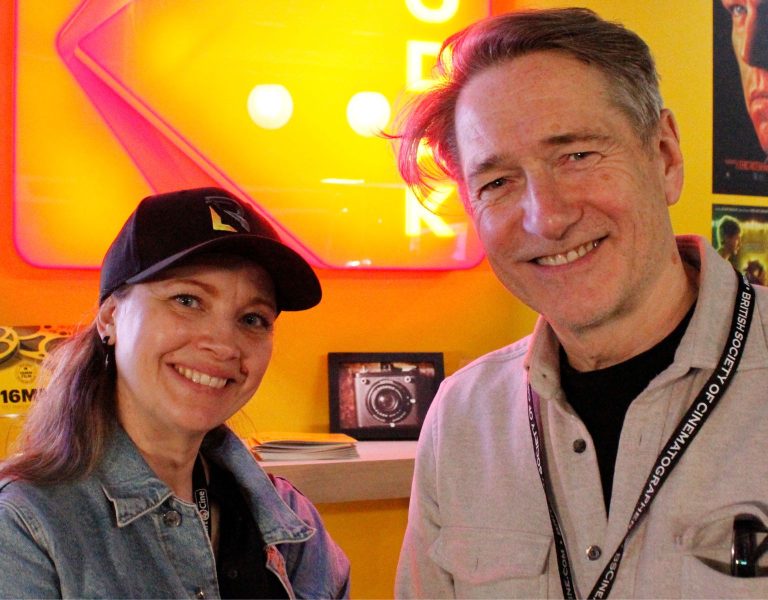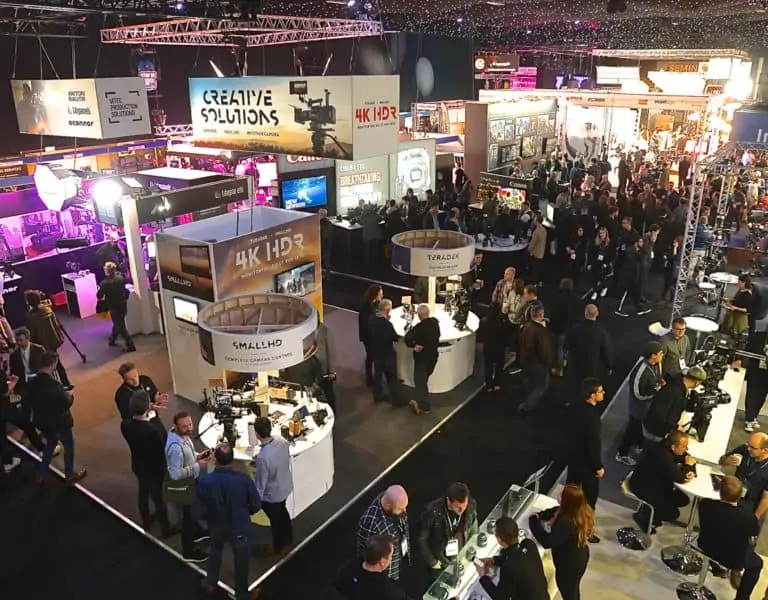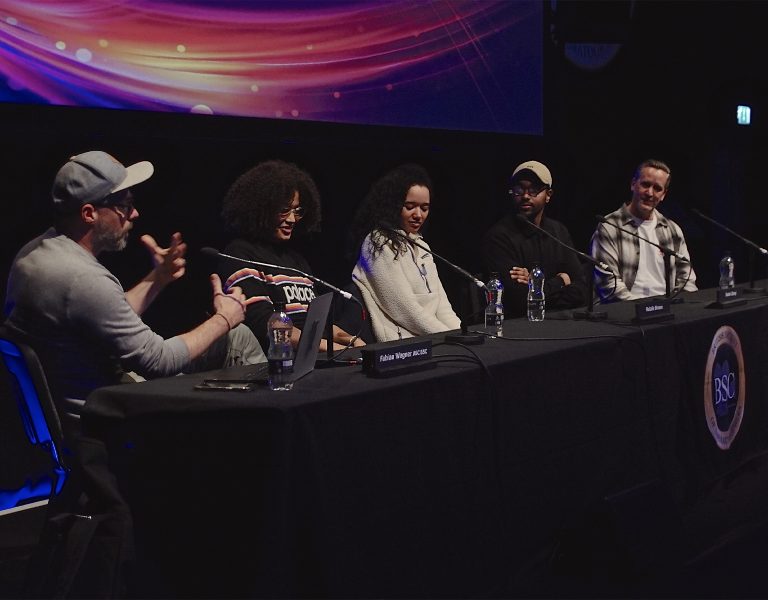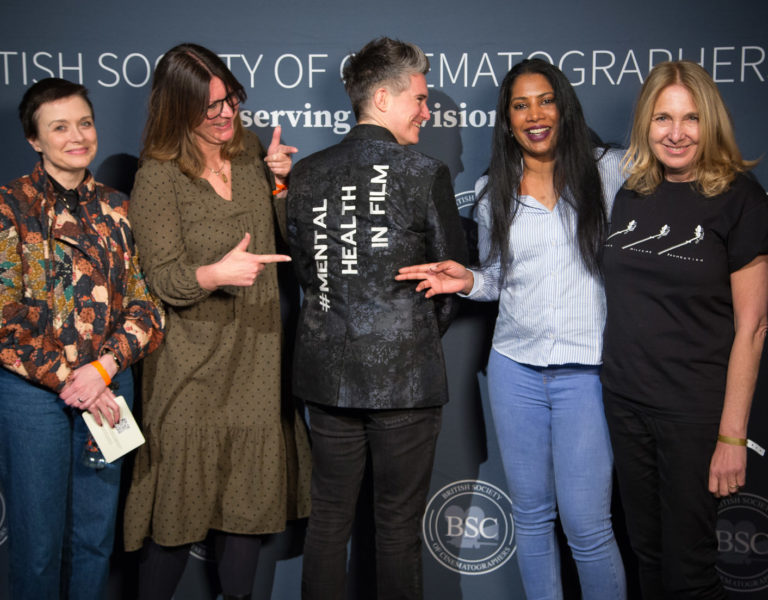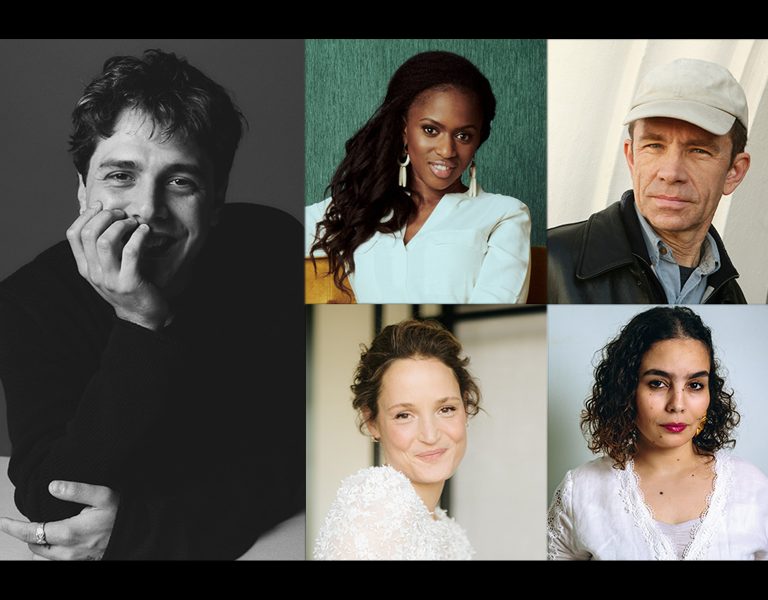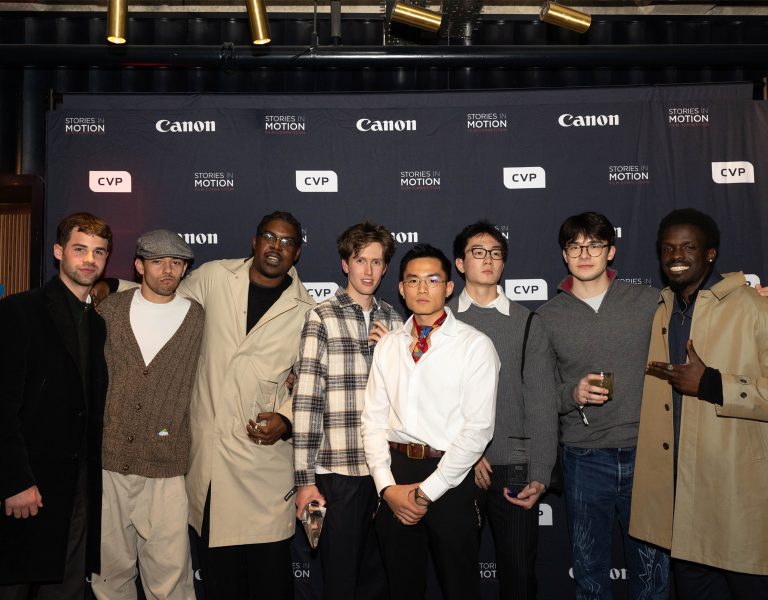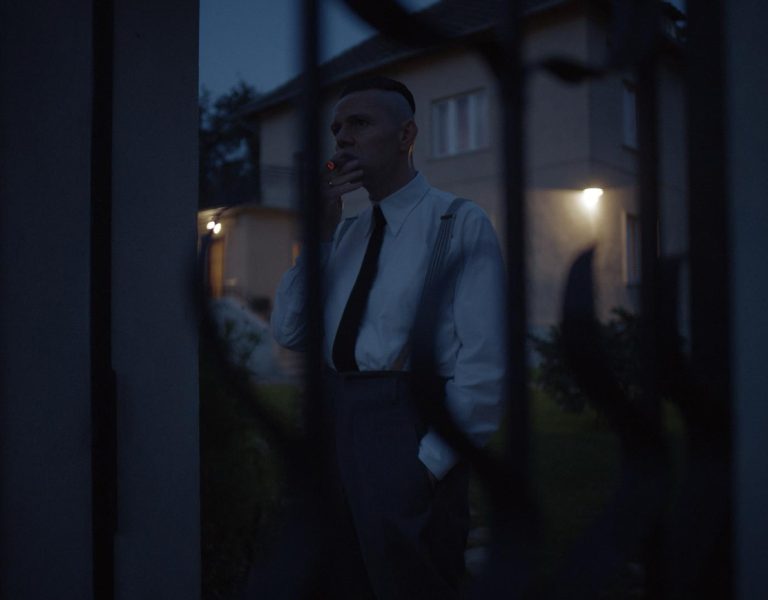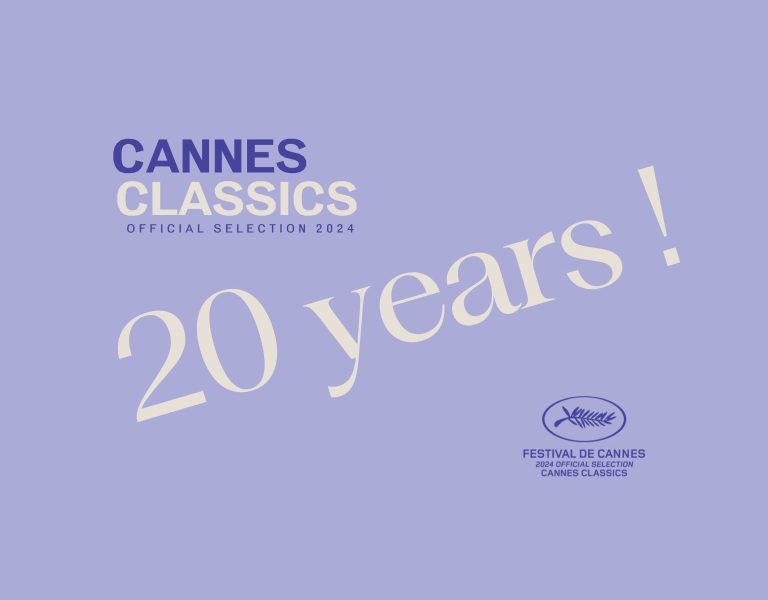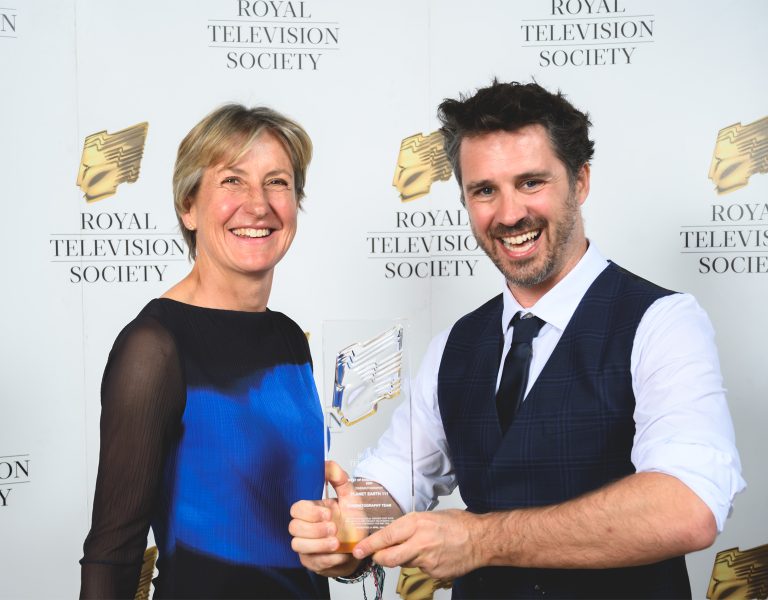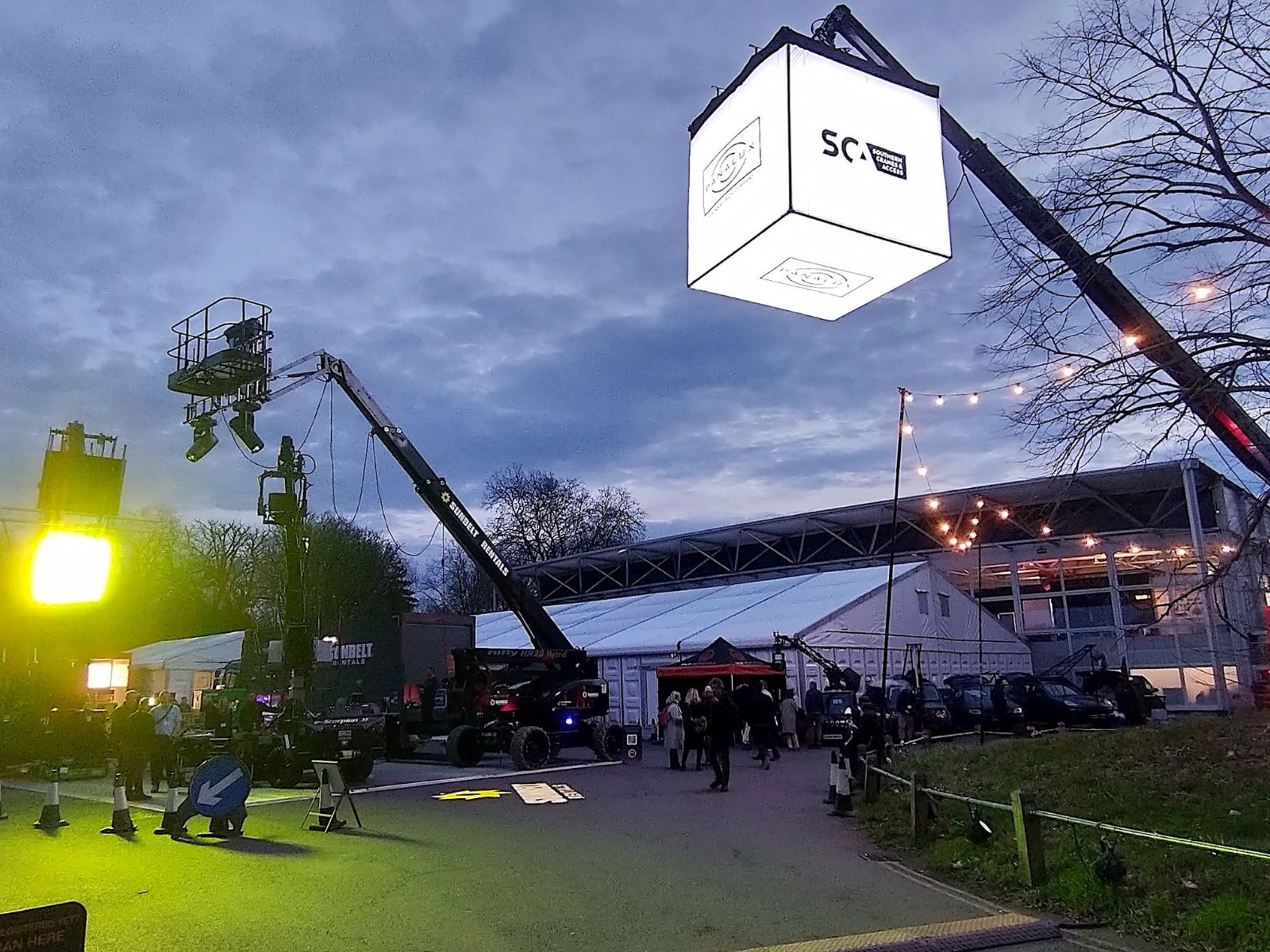
The 2024 edition of the BSC Expo – held in London’s Battersea Park from 16-17 February – is the most expansive version yet. Since this is one of the liveliest and most epic of European motion picture business trade shows, it attracts thousands of visitors. This time around even more exhibitors display their products outdoors in front of the main entrance, in what used to be a parking area just a few Expos ago, and the huge extra tent erected in front of the actual Battersea Evolution is now crammed full of exhibitors and equipment on display. The first time this tent was used, a few years back, it housed only the wardrobe and reception facilities.
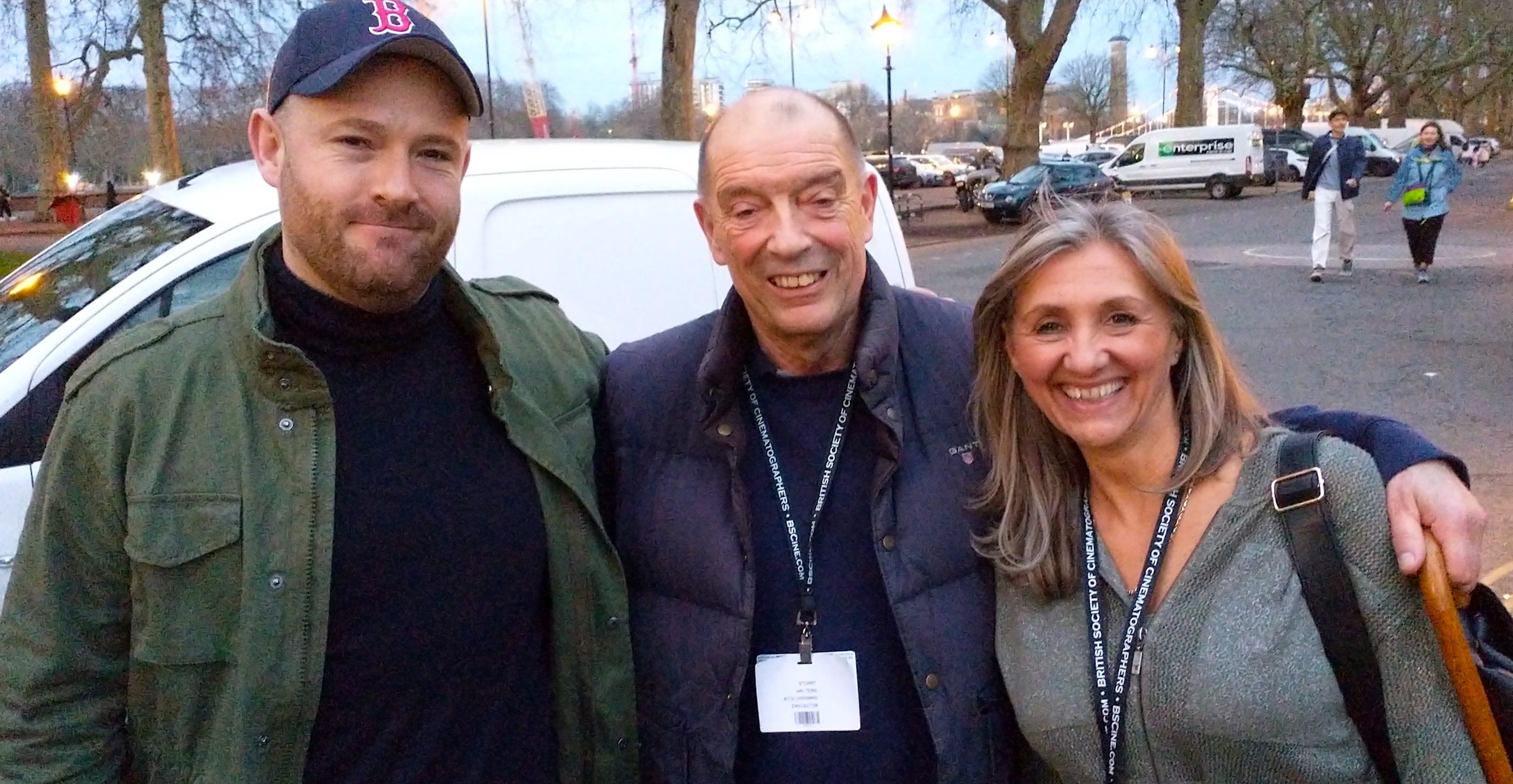
Since the BSC Expo is one of the foremost events of its kind, it offers an excellent opportunity to spot what the current trends in technology and production techniques may be. The 2022 Expo was the first after the COVID lockdown restrictions were eased off and frankly there weren’t any major trends to be seen at that event, since everyone was just delighted to be able to meet in person in a real-life situation for the first time in what felt like ages. This time around though, a distinct trend can be found, and it’s all about downsizing and efficiency. There have been two revolutions in latter years in battery technology and LED lighting, and now we’re beginning to see this bearing fruit in the shape of dramatically new production techniques.
Another trend is that nearly half of this year’s Oscar contenders were shot on film, and the smiling faces in the Kodak and Cinelab booths, as well as the many traditional Panaflex and ARRI movie cameras on display everywhere, seem to confirm this.
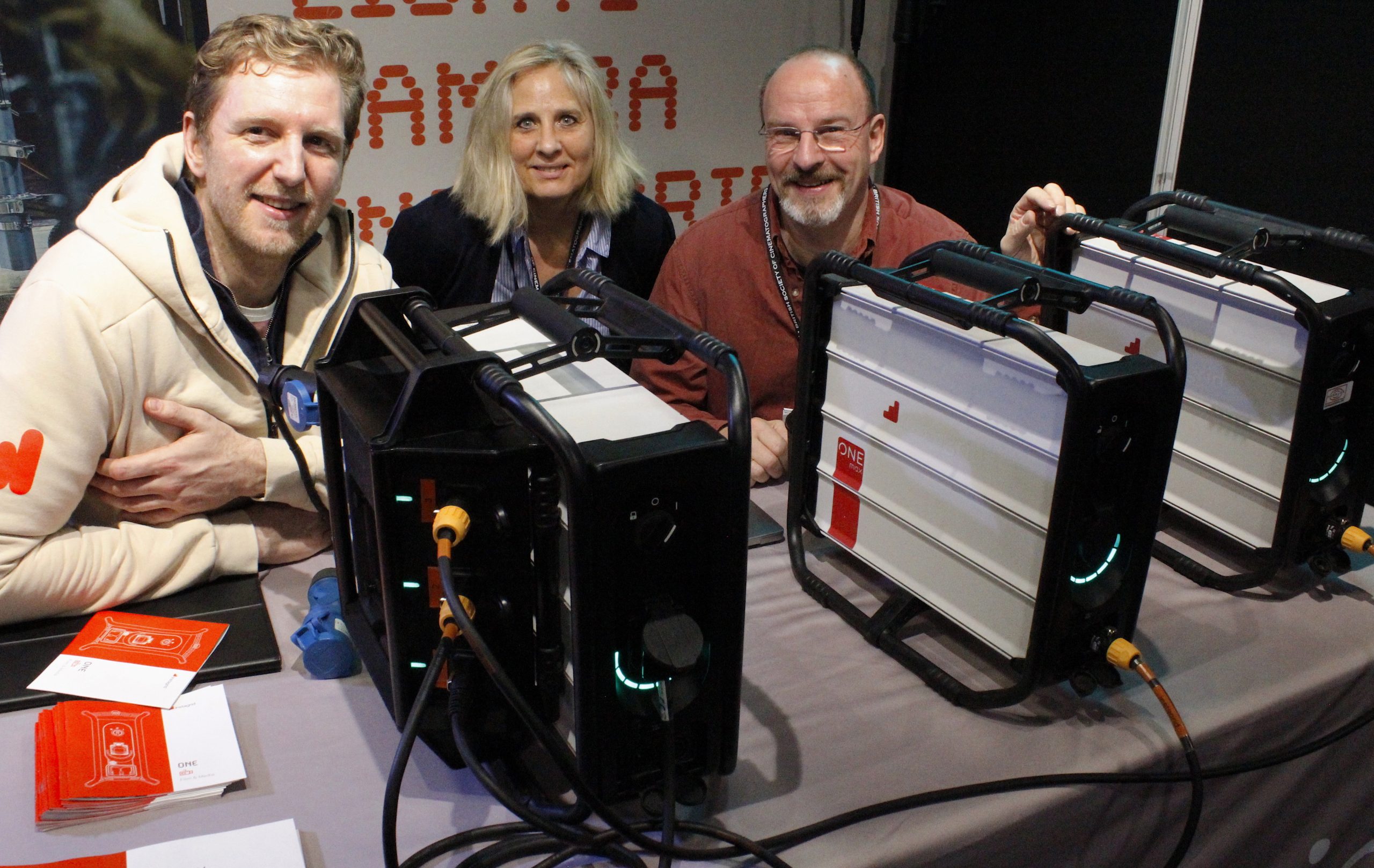
As you begin to meander your way through the huge front tent, one of the first exhibitors you come across are Instagrid, and their powerful battery solutions perfectly illustrate which way the current (pun intended) winds are blowing. Sam Pearson Moore and Till Sadlowski demonstrate how you can not only run an assortment of LED lights on one Instagrid battery for about nine hours, you can now cluster your batteries and run your set lighting for a full 24 hours on just three of these! Switching from one battery to the next is instantaneous and doesn’t affect the light output. What used to require a generator truck and a 4K HMI unit, can now be accomplished with a powerful LED light and an Instagrid battery.
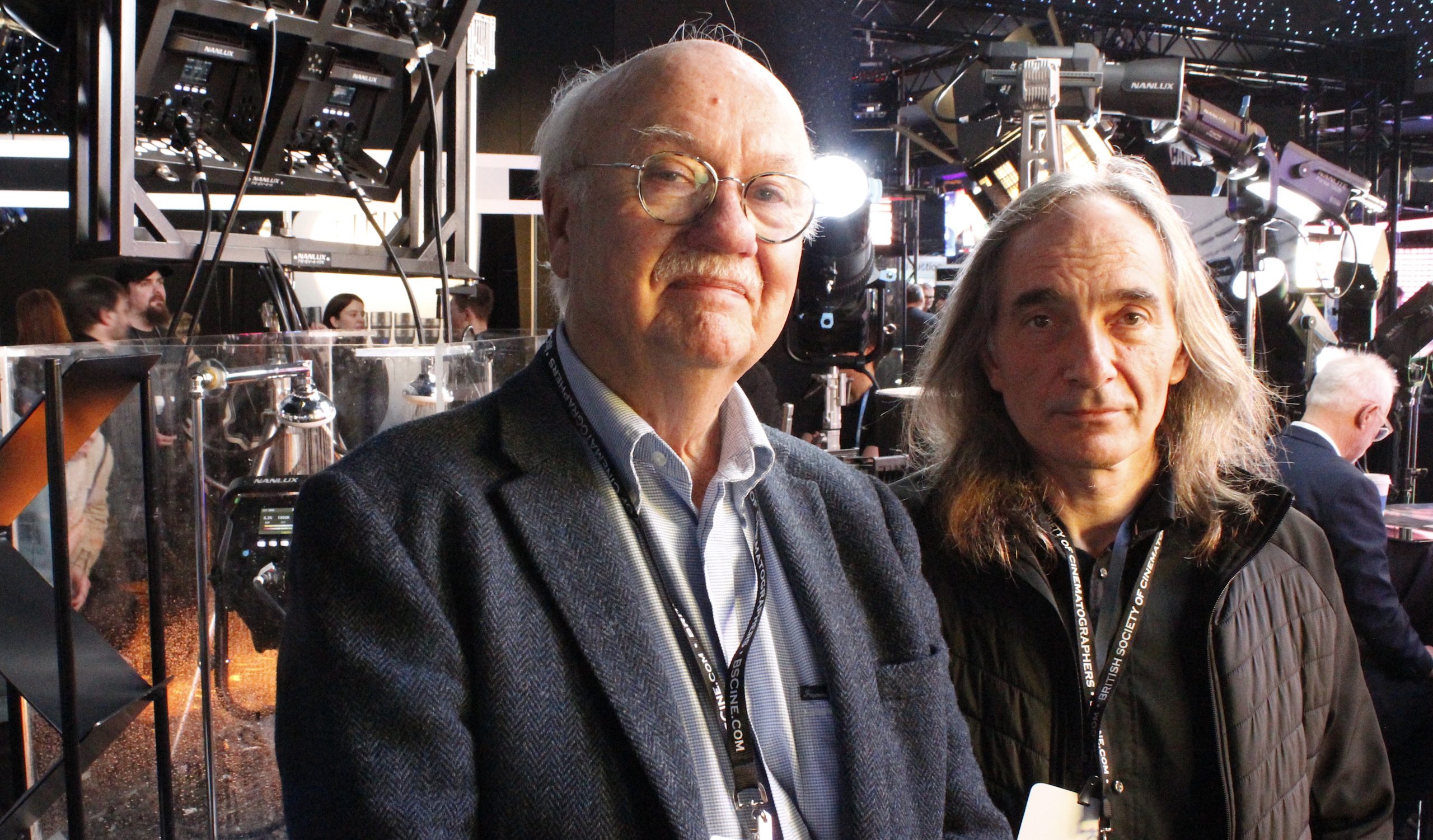
A major player in the current downsizing and efficiency trend is LED lighting specialist Nanlux. In fact, the combination of a Nanlux Evoke 2400B and an Instagrid battery pretty much equals a generator truck and a 4K HMI unit, with the revolutionising difference that one person can comfortably move around the whole package on the set. Nanlux have something of an aquarium in their booth as well, showcasing the fact that some of their units are IP55 proof, meaning they can handle a sizable downpour of rain without any problem.
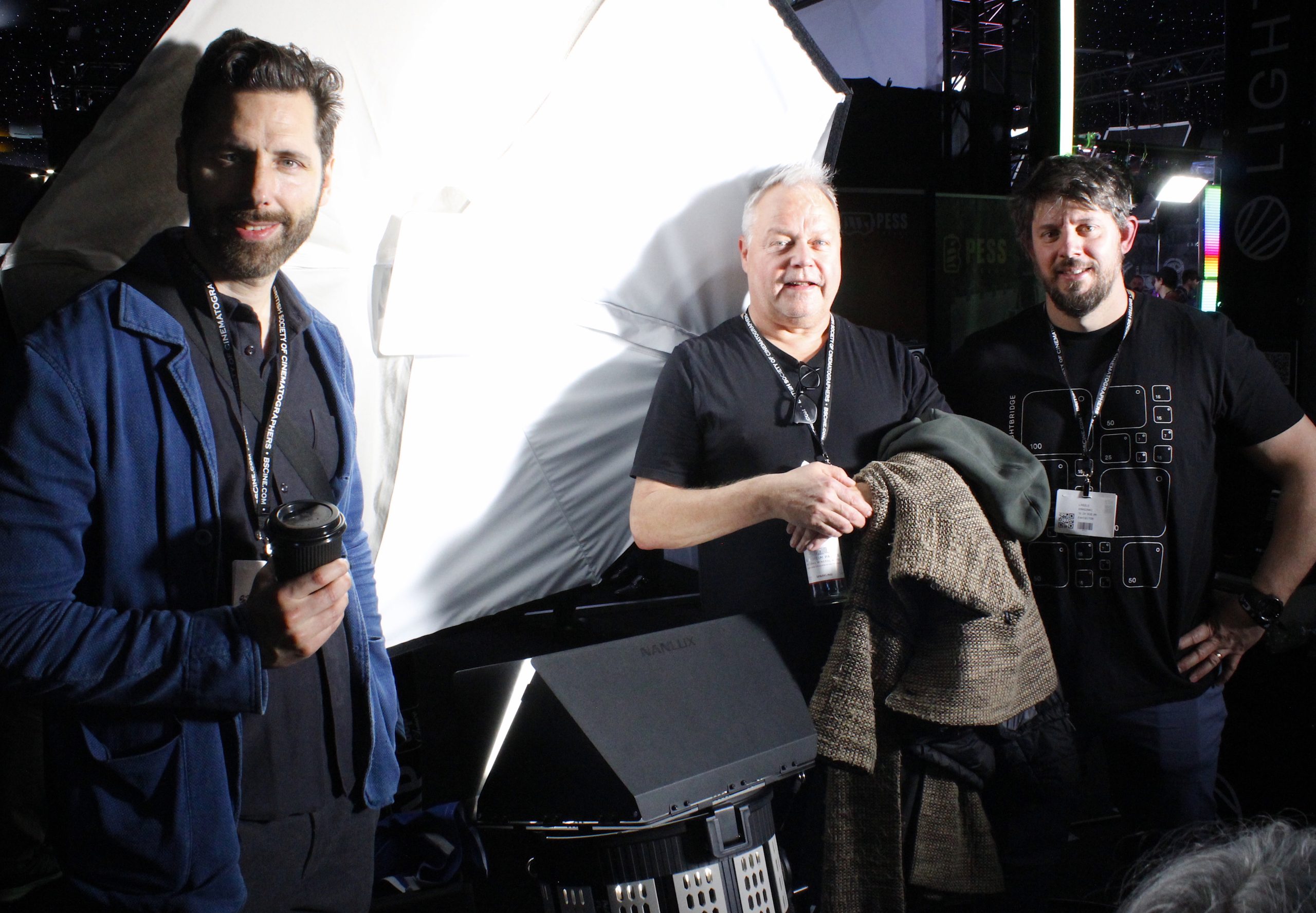
The downsizing trend continues with the remarkable mirrors and umbrellas which German company Light Bridge offer in their booth. Bouncing light off of mirrors and shiny surfaces has been done for thousands of years, but Light Bridge’s products enable you to do so with impressive efficiency and precision. A favourite example is this: you want to simulate sunlight coming through a third floor window on a location shoot. The traditional method would entail a generator truck, a decent size HMI unit, and a cherry picker to hoist the light in place outside the facade of the building. Using products on display at the Expo, you could simply place a Nanlux Evoke 2400B on the pavement, powered by an Instagrid battery, and bounce its beam off a Light Bridge umbrella placed outside the window you want to use.
Add to this, that the traditional method for doing this requires the generator, the cherry picker and the HMI fixture to be brought to the location in a manner emitting quite an amount of carbon dioxide. By using this novel new approach instead, you can pride yourself on basically contributing to saving the planet.
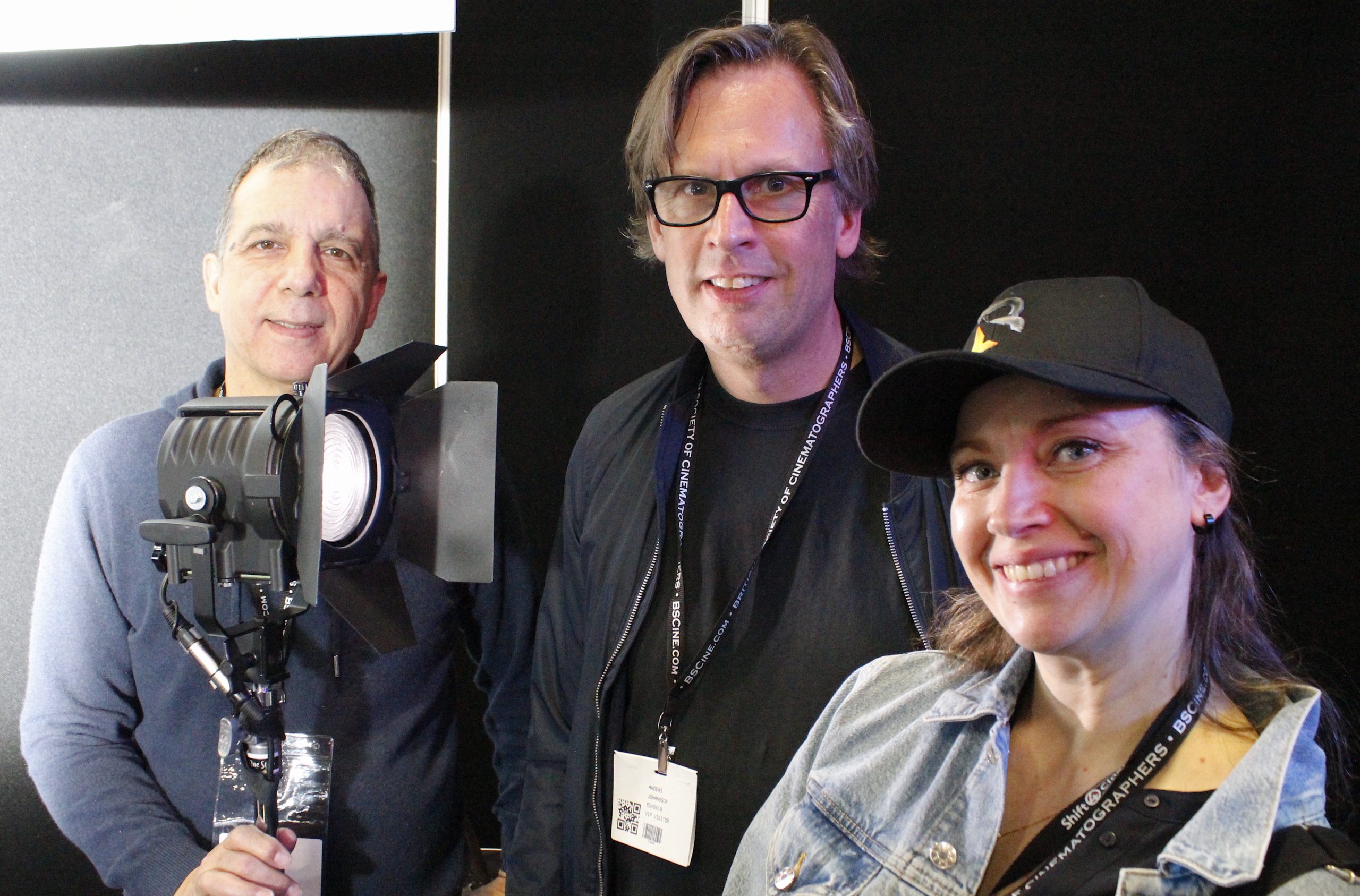
Next stop is a chat with lighting guru Marc Galerne in the K5600 booth. Some LED manufacturers now use six different colours in their fixtures to improve colour performance at low output levels, but Marc swears by the bi-colour light source: he feels it creates the sharpest shadows. To demonstrate this he shows us his neat new 30 watt LED spotlight: the Alpha B, which has about the same form factor as the classic inky dinky/Mizar light, and we’re inclined to agree with him when he demonstrates it: any object held in its beam creates a hard shadow with nice, sharp edges.
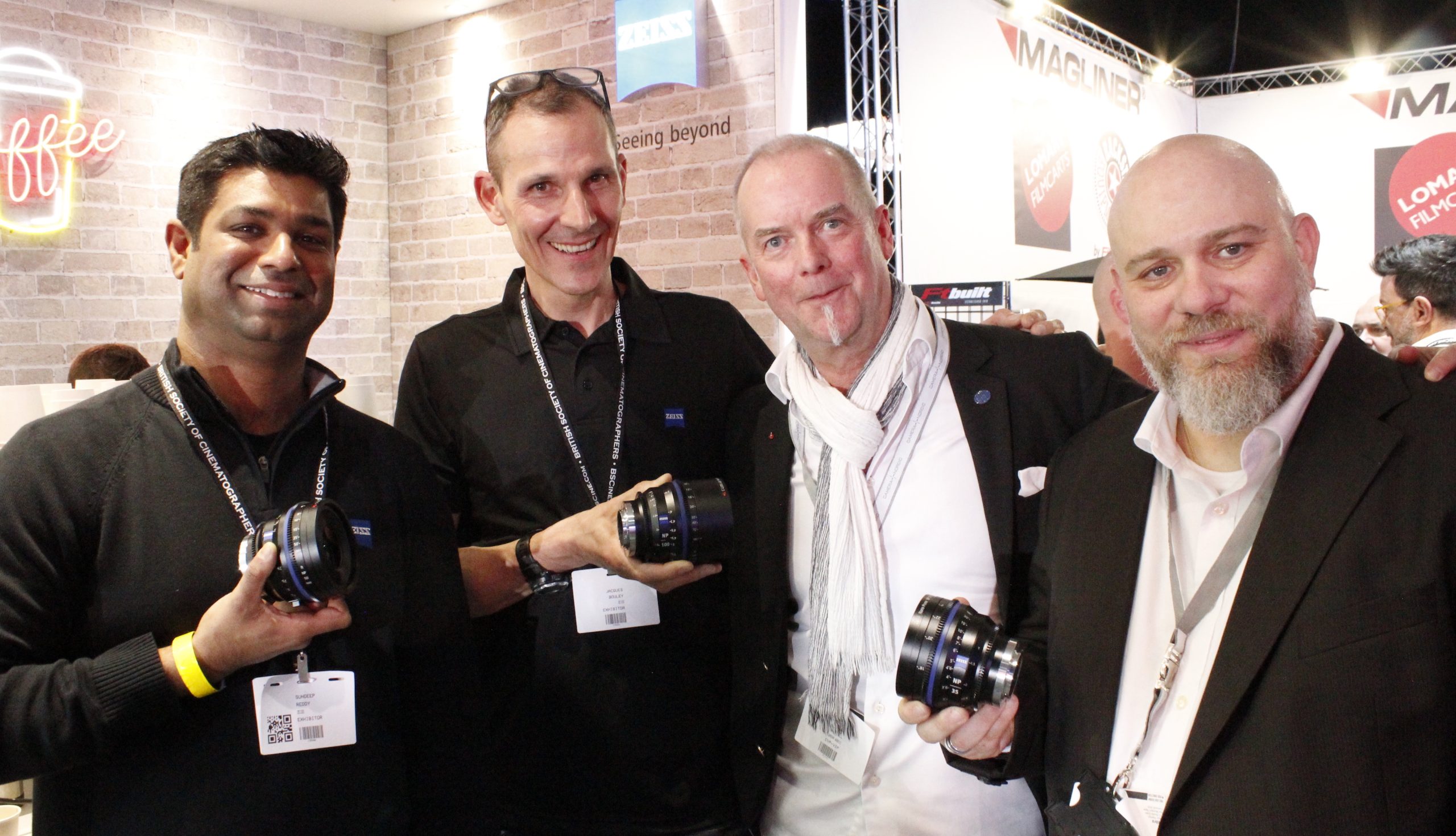
You might think that Zeiss’ new Nano lenses were launched as a response to the new compact Cooke SP3 lenses, which incidentally are everywhere in the exhibition, or in an attempt to adapt to the economic headwinds the industry has been facing lately. But this is in fact wrong, Jacques Bouley explains to us in the Zeiss booth, since it takes five years to create a new set of lenses like these, from inception to actual product ready to ship, so the Nano project was started long ago. The decision was simply made to broaden the Zeiss portfolio with a family of lightweight E-mount lenses that cater to a different section of the market, since not every production can afford to use top-of-the-line Signature primes all the time. Nor are the Signature primes always practical, because you may want to use the Sony Rialto camera head in a really tight corner or you may need a lens for your B-camera with a small form factor.
The Zeiss Nano lenses are lightweight, very fast (T1.5) and they sell for about €4000 apiece, which is ‘Zeiss Language’ for affordable. No, all kidding aside, they’re good value for money since they cover full frame and you can get a full set of these lenses for the same price as just one 24mm Signature prime.
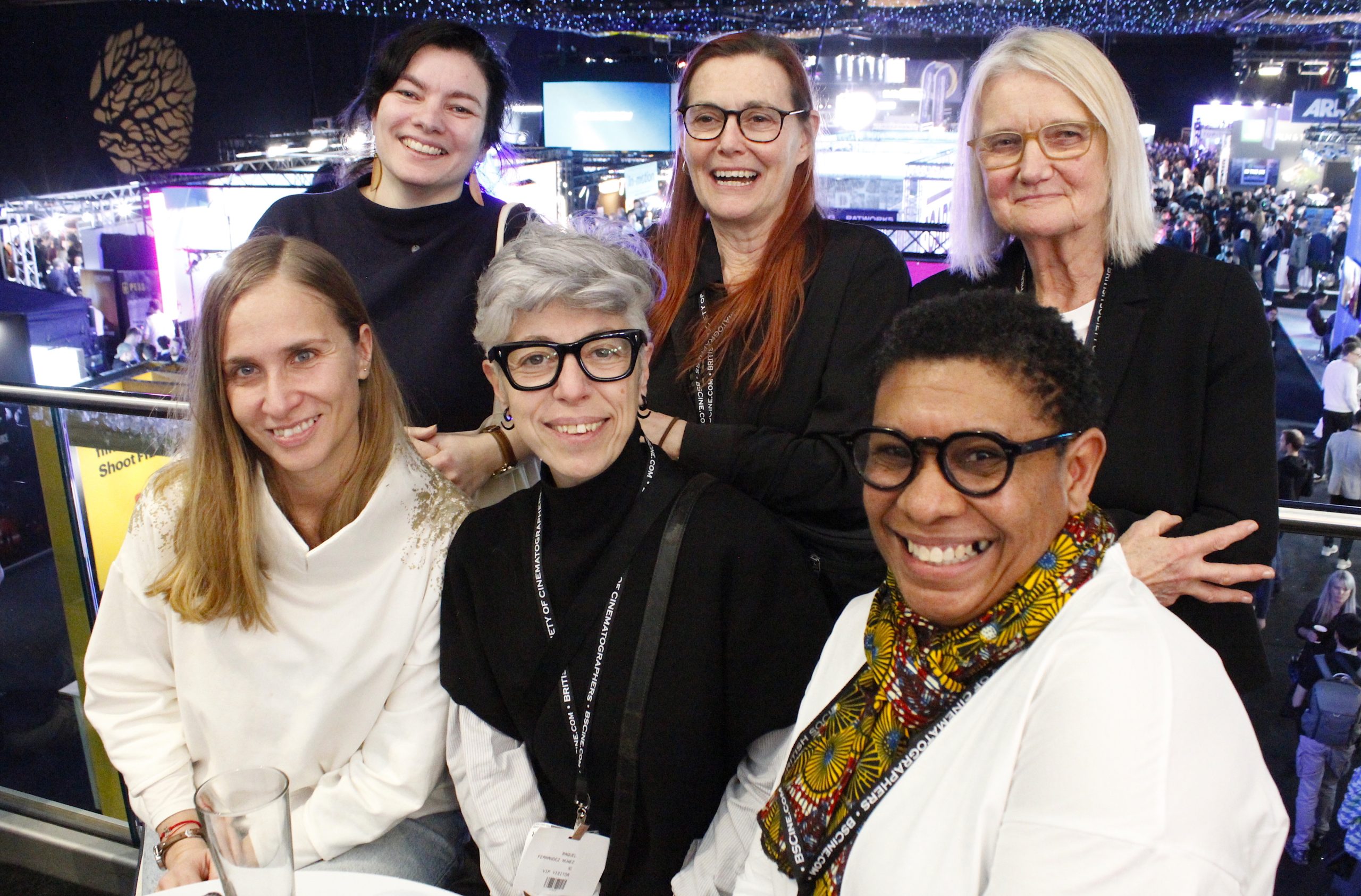
Stepping outside the Expo for a bit of fresh air I have a chat with Dan Lobo-Pires ACO and James Davis ACO from DLP Remotes who proudly display a whole fleet of pursuit cars with remote cranes mounted on top of each one. When these car-mounted cranes became popular about twenty years ago they were known as ‘Russian Arms’, something which their inventors today are not thrilled about, since this is in fact a Ukrainian invention, developed by a company in Kyiv. In fact they named one of their latest models ‘the U-crane’ to set the record straight, so to speak.

Anyway, back to Dan and James. Foremost in their line-up is a pretty much custom-built-from-the-ground-up electric pursuit car. Now you may wonder who on earth would want that, since pursuit cars are traditionally very muscular vehicles capable of handling heavy cameras and going at breakneck speeds. But a short conversation with Dan and James convinces me this is actually a brilliant compliment to their fleet. How about a chase scene set in a really narrow alleyway, say five feet wide? Nothing else on the market would fit there. Or what if someone has constructed half a city block as a set inside a studio and wants to do a chase scene there? An electric pursuit car is of course the ideal choice here as well.
I thank Dan and James for their demonstration and linger for a spell in the cool evening air, which feels very agreeable and really has an uplifting effect on one. I know that inside Evolution London they’re drawing close to the finish line, getting ready for that mad scramble of tearing the whole exhibition down, and I spontaneously fall for the temptation to call it a day and begin to take a leisurely stroll along the Thames, back towards Chelsea Bridge.
Words: Lars Pettersson FSF

